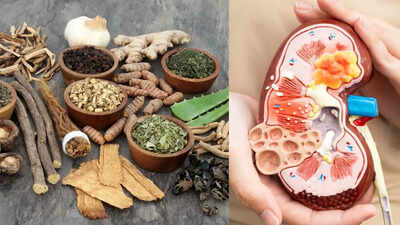How to never get cancer? 5 powerful ways to support your body and lower cancer risk |

One of the central messages is that cancer isn’t just about “bad cells” in isolation, but about the underlying terrain of the body, how well our cellular energy systems (the mitochondria) are functioning, how our metabolism is balanced, and how well our body defences (immune, detoxification) are working. Dr Berg emphasises that supporting mitochondrial health becomes a key strategy in reducing cancer risk.When mitochondria are damaged or dysfunctional, cells may revert to abnormal energy pathways, oxidative stress increases, and the environment becomes more favourable for malignant transformation. By contrast, healthy mitochondria contribute to normal apoptosis (cell‑death when needed), stable metabolism, and robust resilience.
Understanding how cancer develops
Cancer arises when normal cells lose the ability to control growth and division. DNA mutations caused by factors like carcinogens, viruses, chronic inflammation, or inherited genes disrupt the balance of oncogenes and tumor suppressor genes. These changes allow cells to multiply uncontrollably, evade death, and sometimes hide from the immune system. Cancer cells also alter their metabolism, relying on less efficient energy processes to fuel rapid growth. Tumors can form and, in some cases, spread to other parts of the body (metastasis). Overall, cancer reflects not just rogue cells but a body environment that enables their survival and growth.
5 quick tips to avoid getting cancer
An early point in the video: “Avoid all refined foods.” That means sugar, refined flour, processed snacks, and other “empty‑calorie” items. Why does this matter? Refined foods tend to spike insulin, promote inflammation, feed abnormal cell growth, and put stress on metabolic regulation.When you reduce the intake of these foods, you lessen insulin spikes, reduce the oxidative burden on mitochondria, and create an internal milieu less hospitable to cancerous changes. This strategy aligns with broader research showing that diets high in highly processed carbs correlate with higher cancer risk.
- Support mitochondria via diet and fasting
Beyond what you eliminate, Dr Berg advocates for what you do to support mitochondrial health. Two major diet‑strategies he mentions: adopting a low‑carbohydrate (or moderately low‑carb) diet, and using intermittent fasting (or time‑restricted eating). The idea is to reduce metabolic strain, allow cells to repair, reduce oxidative stress, and give mitochondria a chance to “reset”.When you go low‑carb, fewer glucose surges occur; insulin demand drops. When you fast or restrict your eating window, your body shifts toward fat/ketone metabolism for periods, which may enhance mitochondrial resilience, trigger autophagy (cellular clean‑up) and reduce inflammation.
- Antioxidants and phytochemicals
Another key theme is the role of antioxidants and phytochemicals (plant compounds) in protecting cells and mitochondria from damage. Foods rich in colourful vegetables, berries, herbs and certain spices help neutralise free radicals and lower oxidative stress. Herbs like turmeric, rosemary, green tea extract, and others may support mitochondria and immunologic health.By making an “anti‑cancer diet” that is heavy on whole, unprocessed plant foods, you provide the raw materials your body needs to defend itself. You improve detox pathways (liver, lymphatic), bolster immune surveillance, and reduce the accumulation of damaged cells.
Lifestyle factors: Movement, sunlight, fresh air, detoxification
Cancer prevention isn’t just about what you eat. The video touches on lifestyle factors: daily physical movement, exposure to natural sunlight (for vitamin D), fresh air, and even cold exposure or “stressors” that stimulate mitochondrial adaptation. These practices make the body more robust, optimise circulation, support tissue oxygenation, and enhance immune function.Movement means muscle‑pump, lymph flush, better mitochondrial density. Sunlight signals circadian processes and vitamin D synthesis (important for immune health). Fresh air and decent ventilation reduce indoor pollutants and support respiratory‑detoxification.Minimising iron overload and other hidden risksA more nuanced point: he mentions avoiding excess iron accumulation. While iron is essential, in excess it can catalyse free‑radical reactions (Fenton chemistry) and thereby damage mitochondria and DNA. So ensuring you’re not overloaded with iron (especially if you’re not using it) can be protective. It signals that cancer‑prevention isn’t only “big”, obvious things but also hidden biochemical stressors.Other hidden risks include environmental toxins, poor sleep, chronic stress, and impaired gut health all of which may impair mitochondrial and immune health long‑term.Disclaimer: This content is for informational and educational purposes only and is not a substitute for professional medical advice, diagnosis, or treatment. Always consult a qualified healthcare provider before making significant changes to your diet, lifestyle, or supplement routine, especially if you have existing medical conditions.






